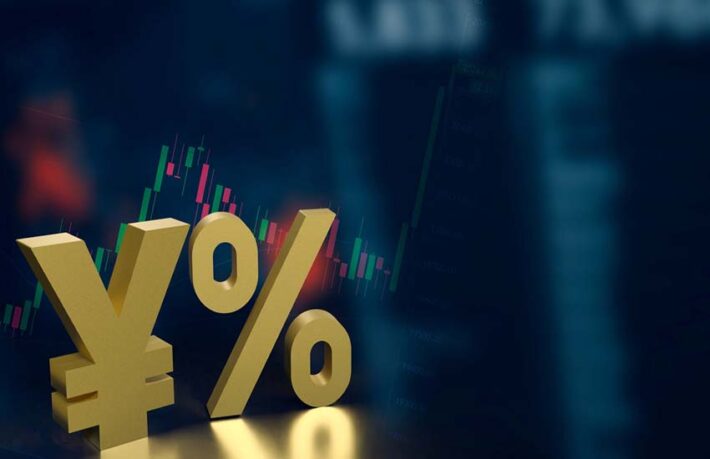The FTSE 100 in Detail: Origin, Functioning, and Impact
The FTSE 100 Index, short for Financial Times Stock Exchange 100 Index, stands as a key benchmark for investors and traders worldwide. This index comprises the 100 largest companies listed on the London Stock Exchange, offering insight into the performance of the British market as a whole. Its broad base of individual stocks gives it a robust signal, surpassing indices such as the US Dow Jones or the German DAX in terms of reliability.
What Defines the FTSE 100 Index?
The FTSE 100 is a stock market index that tracks the performance of the 100 largest companies listed on the London Stock Exchange, the UK’s main stock market. Created through a partnership between the Financial Times and the London Stock Exchange (FTSE), this index is a key indicator of the British financial landscape. Its composition covers various economic sectors, including financial services, energy, mining, industry, healthcare, and consumer goods.
This index serves as a yardstick for assessing the overall health of the British stock market and is often considered a barometer of the UK economy. Given the significant global presence of many of the companies that comprise it, the FTSE 100 transcends national borders, also reflecting the strength and competitiveness of multinationals in the global market.
The FTSE 100 exerts considerable influence on the investment decisions of pension funds, mutual funds, and other institutional investors, who frequently base their strategies on indices of this nature. Fluctuations in the FTSE 100 can trigger capital movements and reshape investment decisions in the market. Abrupt changes in the index can signal economic, political, or market transformations in the United Kingdom and globally.
How Are Companies Selected for the FTSE 100?
The selection of companies that make up the FTSE 100 is based primarily on their market capitalization, which represents the total value of their outstanding shares. The index includes the 100 companies with the largest market capitalization listed on the London Stock Exchange.
In addition to capitalization, the liquidity of the shares is considered, ensuring that the securities of the companies included are actively traded on the market. The index is reviewed quarterly to ensure that the constituent companies continue to meet the criteria for size, liquidity, and listing on the London Stock Exchange. Companies whose capitalization has declined significantly may be replaced by those that have experienced notable growth in market value.
The London Stock Exchange: Epicenter of the British Market
The London Stock Exchange is the UK’s leading stock market, with a significant influence on the development of international stock markets. Its FTSE index is highly regarded by analysts worldwide. With a history dating back more than 300 years, the LSEG (London Stock Exchange Group) was formed in October 2007 following the merger of the London Stock Exchange with the Milan Stock Exchange (Borsa Italiana).
In addition to the FTSE 100, the London Stock Exchange is home to other important indices:
- FTSE 250: Represents the 250 companies with the next highest market capitalization after the FTSE 100.
- FTSE All-Share Index: A broader index covering all companies listed on the London Stock Exchange.
- FTSE AIM All-Share Index: Focuses on companies listed on the Alternative Investment Market (AIM), a market for smaller, growing companies.
- FTSE SmallCap Index: Includes companies with a market capitalization smaller than those in the FTSE 100 and FTSE 250.
Origins and Genesis of the FTSE 100
The FTSE 100 was created to provide a clear and accurate view of the performance of the leading companies listed on the London Stock Exchange. It was the result of a collaboration between the Financial Times and the London Stock Exchange, which explains its name. The primary objective was to establish an index that would serve as a benchmark for investors and a reliable indicator of the British economy.
Evolution and History of the Index
Since its inception, the FTSE 100 has undergone significant evolution, marked by key milestones:
- 1980s and 1990s: A period of substantial growth driven by market liberalization, globalization, pro-market economic policies, and the privatization of state-owned industries.
- Dot-com Crisis (2000–2002): Like other stock market indices, the FTSE 100 suffered a sharp decline due to the bursting of the tech bubble.
- Global Financial Crisis (2007–2008): The crisis had a severe impact, causing a sharp decline in the value of the FTSE 100. However, the index proved resilient and recovered in the following years, reaching new all-time highs.
- Brexit (2016): The referendum on the United Kingdom’s exit from the European Union created uncertainty and volatility in financial markets, affecting the FTSE 100. Despite this, many companies with global revenues managed to mitigate the negative effects in the long term.
Regular Adjustments and Reviews
The FTSE 100 undergoes quarterly reviews (in March, June, September, and December) to ensure that it continues to represent the 100 companies with the highest market capitalization on the London Stock Exchange. These reviews keep the index up to date and accurately reflect market dynamics.
Quarterly Reviews
Companies with significantly increased market capitalization may be added, while those whose value has declined may be removed.
Adjustments for Mergers and Acquisitions
The index is also adjusted in response to major corporate events that alter the size and structure of companies.
Global Impact of the FTSE 100
Despite being a British index, the FTSE 100 has a global reach due to the international nature of many of its constituent companies. Firms such as HSBC, BP, and GlaxoSmithKline operate across multiple countries, making the index a reflection of both the UK economy and global economic trends.
Current Relevance of the FTSE 100
Today, the FTSE 100 is a crucial indicator for investors, analysts, and economists worldwide. Its performance is closely monitored, and investment decisions and trading strategies are often based on its behavior. Its influence also extends to other indices and financial markets.
Significance and Importance of the FTSE 100 in the Economy
The FTSE 100 serves as an essential barometer of the UK’s economic health. By bringing together leading companies, it offers a comprehensive view of the performance of the British market. Investors, traders, and analysts use it to assess the performance of large companies and, by extension, the country’s economy.
Key Features of the FTSE 100
Composition
Groups together the 100 companies with the highest market capitalization on the London Stock Exchange, covering a wide range of economic sectors.
Quarterly Review
Reviewed every March, June, September, and December, allowing companies to enter or exit based on their market capitalization.
Weighting by Market Capitalization
Companies with higher market capitalization have a greater influence on the index’s performance.
Global Benchmark
The international presence of many of its companies gives the FTSE 100 relevance beyond UK borders.
Investing in the FTSE 100 with OnEquity
OnEquity allows you to invest in some of the world’s most traded stock indices, including the NASDAQ 100, DOW 30, DAX 40, FTSE 100, and EURO STOXX 50. The platform offers several advantages:
- Access to all major U.S., European, and Asian indices
- Leverage of up to 1:1
- Ultra-competitive spreads
- No commissions
Conclusion
By reflecting the overall sentiment of the UK market through its most capitalized companies, the FTSE 100 presents significant investment opportunities and has established itself as a widely traded instrument in global financial markets.


